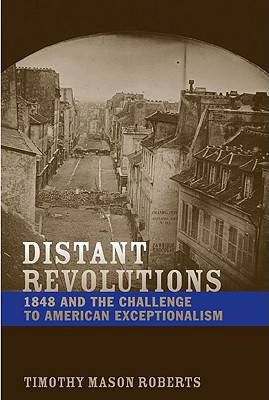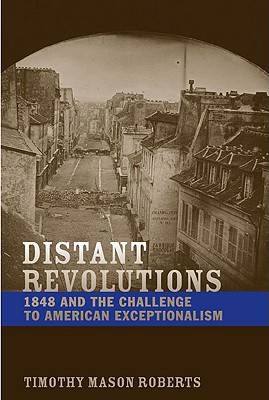
- Retrait gratuit dans votre magasin Club
- 7.000.000 titres dans notre catalogue
- Payer en toute sécurité
- Toujours un magasin près de chez vous
- Retrait gratuit dans votre magasin Club
- 7.000.000 titres dans notre catalogue
- Payer en toute sécurité
- Toujours un magasin près de chez vous
Description
Distant Revolutions: 1848 and the Challenge to American Exceptionalism is a study of American politics, culture, and foreign relations in the mid-nineteenth century, illuminated through the reactions of Americans to the European revolutions of 1848. Flush from the recent American military victory over Mexico, many Americans celebrated news of democratic revolutions breaking out across Europe as a further sign of divine providence. Others thought that the 1848 revolutions served only to highlight how America's own revolution had not done enough in the way of reform. Still other Americans renounced the 1848 revolutions and the thought of trans-atlantic unity because they interpreted European revolutionary radicalism and its portents of violence, socialism, and atheism as dangerous to the unique virtues of the United States.
When the 1848 revolutions failed to create stable democratic governments in Europe, many Americans declared that their own revolutionary tradition was superior; American reform would be gradual and peaceful. Thus, when violence erupted over the question of territorial slavery in the 1850s, the effect was magnified among antislavery Americans, who reinterpreted the menace of slavery in light of the revolutions and counter-revolutions of Europe. For them a new revolution in America could indeed be necessary, to stop the onset of authoritarian conditions and to cure American exemplarism. The Civil War, then, when it came, was America's answer to the 1848 revolutions, a testimony to America's democratic shortcomings, and an American version of a violent, nation-building revolution.
Spécifications
Parties prenantes
- Auteur(s) :
- Editeur:
Contenu
- Nombre de pages :
- 272
- Langue:
- Anglais
- Collection :
Caractéristiques
- EAN:
- 9780813927992
- Date de parution :
- 03-06-09
- Format:
- Livre relié
- Format numérique:
- Genaaid
- Dimensions :
- 157 mm x 234 mm
- Poids :
- 544 g







